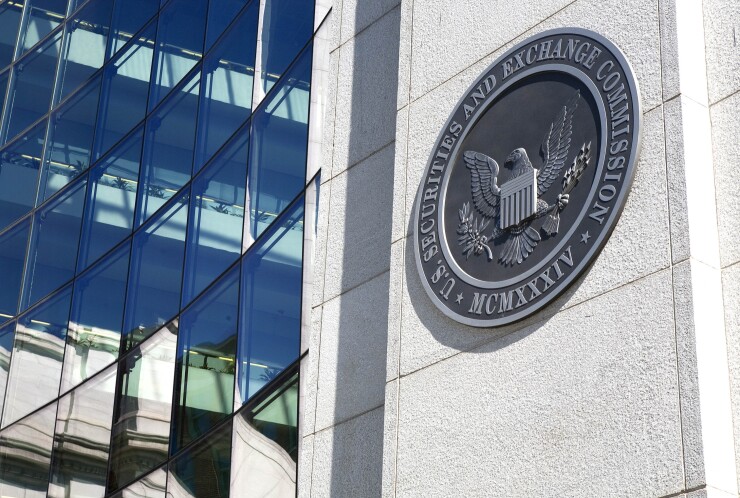New money market rules from the Securities and Exchange Commission — effective in October — will change how retail funds need to operate, creating a major impact on retirement rules. Plan sponsors need to be prepared.
The new fund rules establish new definitions and rules for government and retail funds. Under those rules, a certain type of fund must now be designated as a retail fund and must be available only to “natural persons” — individuals, certain trusts and defined contribution plans.
Investors that are not natural persons, including institutional and other non-retail investors, will not be permitted to invest in retail funds. Instead, they will be required to use institutional funds. Since a defined benefit plan does not qualify as a “natural person” under the new rules, plan sponsors who maintain both a DB and a DC plan should thoroughly examine their fund options going forward.

Government funds now will be prohibited from owning any meaningful amount of non-government securities. These will be the only category of fund that does not have to partition its shareholders into either a retail or institutional fund (by contrast, prime and municipal funds will have to go through such a partition). Because of their wide availability and additional benefits described below, government funds seem likely to become the default money market fund category for many retirement plans.
All institutional non-government funds, such as prime and municipal funds, will have to sell and redeem shares based on the current market price of the funds’ holdings (rounded to the fourth decimal place; i.e. $1.0000). In other words, the share price for these funds will float. However, any retail prime or municipal fund can continue to operate under the $1.00 fixed NAV, effectively shielding these fund shareholders from any worries associated with floating NAV funds.
Government funds will not be subject to the floating NAV rule, creating a very important exception for this special category of fund. For investors that are not natural persons (including institutional and DB plans in particular), this is the only category of fund that will be exempt from the floating NAV requirement (as noted above, all institutional prime and municipal funds will float).
In addition, all funds will be allowed to suspend redemption requests for up to 10 days and impose redemption fees of up to 2% under certain stressful market conditions (collectively “fees and gates”). Note that fees and gates are required for some funds (e.g., retail and institutional prime or municipal funds), while other funds (e.g., government) have the ability, but not the obligation, to impose fees and gates. This is a subtle distinction that has led to a common misconception that government funds may not impose fees and gates. In point of fact, a government fund’s board is explicitly authorized to impose such fees and gates, so long as the ability to do so is provided in the fund’s prospectus and shareholders are given 60 days’ written notice.
The table presents a useful summary of some of the important changes in the new rule and mentioned in this alert:
Fund Category | Net Asset Value | Liquidity Fee | Redemption Gate |
| U.S. Treasury | Stable | PBNR* | PBNR* |
| Government | Stable | PBNR* | PBNR* |
| Retail Prime | Stable | Yes | Yes |
| Retail Municipal | Stable | Yes | Yes |
| Institutional Prime | Variable | Yes | Yes |
| Institutional Municipal | Variable | Yes | Yes |
*Permitted But Not Required
During this period of transition to the new rules, fund companies have been busy merging funds, re-naming funds, etc. Many fund providers have been proactively migrating their DC plan clients to a retail-designated government fund. Plan sponsors should take note and archive any correspondence received in this regard. Any new or updated fund prospectuses and statements of additional information should be reviewed by plan sponsors or their service providers, along with the fund’s competitive position, and the fund’s retention/replacement should be affirmatively acknowledged by a vote of the plan fiduciaries charged with investment discretion, documented through minutes and archived accordingly.
Every plan sponsor should work expeditiously to determine what sort of fund is appropriate for its plan(s). Each plan sponsor also should be engaging its service providers — if it has not done so already — to examine any fund held by its plan(s) to make sure the plan sponsor understands that fund in light of the new rules, and to affirm that it is a reasonable choice given plan requirements.
If a plan sponsor elects to use a government fund, the plan sponsor should make a special effort to determine if the selected government fund will have the ability to impose fees and gates. While major fund providers do not anticipate levying fees and gates, a plan sponsor should note and archive the fund’s decision in this regard, which must be disclosed in the prospectus. Proper monitoring of the fund’s shareholder communications also is required, since only 60 days’ advance notice is required to impose fees and gates.





